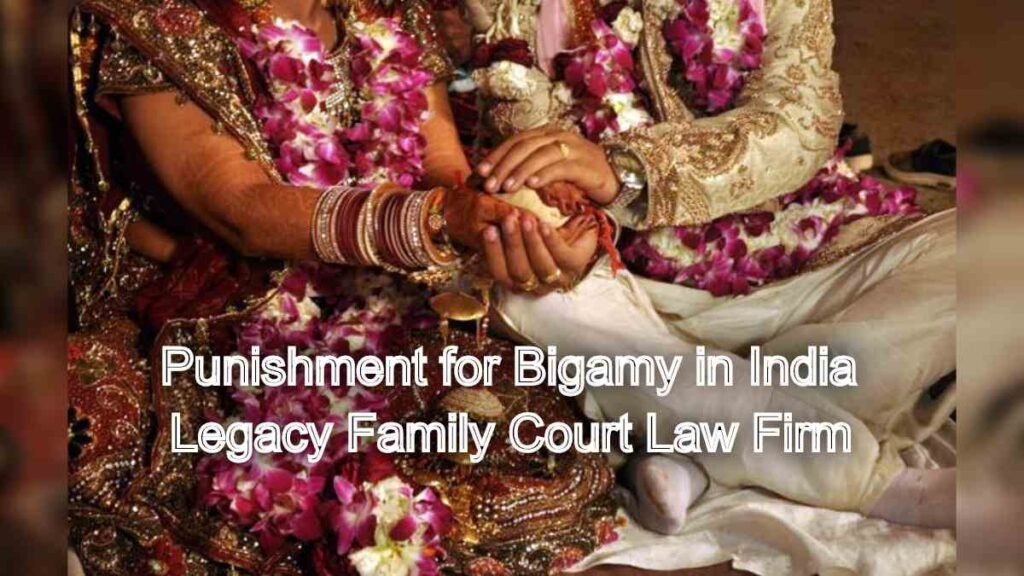Understanding Bigamy Laws: Legal Consequences and Protection
Punishment for Bigamy in India: Legal Consequences
Bigamy, the act of marrying one person while already legally married to another, is a serious offense in India. It is considered a criminal act with significant legal consequences. This article will delve into the legal ramifications of bigamy in India.
Legal Framework

The legal framework for bigamy in India is primarily governed by:
- The Indian Penal Code (IPC): Section 494 of the IPC explicitly defines bigamy as an offense. It states that whoever, having a husband or wife living, marries again without the dissolution of the first marriage by a decree of a competent court, shall be punished with imprisonment for a term which may extend to seven years, and shall also be liable to fine.
- Personal Laws: Different religions in India have their own personal laws governing marriage and divorce. While these laws may vary, they generally do not permit bigamy.
- Local Laws: Some states in India may have additional laws or regulations related to marriage and bigamy.
Consequences of Bigamy
The consequences of committing bigamy in India can be severe, both for the person committing the offense and the affected parties. These consequences include:
- Criminal Prosecution: A person found guilty of bigamy can face imprisonment for up to seven years and a fine.
- Annulment of the Second Marriage: The second marriage is considered void and can be annulled.
- Social Stigma: Bigamy often carries a significant social stigma, leading to reputational damage for the individuals involved.
- Impact on Children: Children born out of a bigamous marriage may face legal and social challenges, affecting their rights and inheritance.
- Financial Implications: Bigamy can lead to complex financial disputes, including property division and alimony claims.
Proving Bigamy
Proving bigamy can be a complex legal process. Evidence such as marriage certificates, witness testimonies, and documentary proof of the first marriage is typically required. Engaging the services of an experienced lawyer is crucial to build a strong case.
Seeking Legal Assistance
If you suspect or are facing issues related to bigamy, it is essential to seek legal advice from an experienced family law attorney. A qualified lawyer can guide you through the legal process, protect your rights, and help you navigate the complexities of bigamy cases.
Read More
- Annulment of Marriage in India: Grounds and Procedures
- NRI Divorce Legal Services: Support for Expatriates
- Muslim Divorce Cases: Legal Procedures and Considerations
- Expert Matrimonial Dispute Lawyers for Your Case
- Finding the Right Marriage Dispute Advocates in India
- National Commission for Women (NCW):
Legacy Family Court Law Firm is a renowned law firm specializing in family law matters, including bigamy cases. Our team of skilled attorneys is dedicated to providing comprehensive legal representation and support to clients facing the challenges of bigamy.
Contact us today for a confidential consultation.